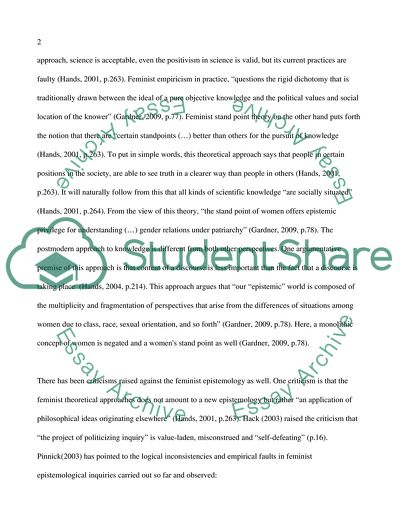Cite this document
(Feminist Epistemology and Philosophy of Science Research Paper, n.d.)
Feminist Epistemology and Philosophy of Science Research Paper. Retrieved from https://studentshare.org/gender-sexual-studies/1791113-feminist-epistemology-and-philosophy-of-science
Feminist Epistemology and Philosophy of Science Research Paper. Retrieved from https://studentshare.org/gender-sexual-studies/1791113-feminist-epistemology-and-philosophy-of-science
(Feminist Epistemology and Philosophy of Science Research Paper)
Feminist Epistemology and Philosophy of Science Research Paper. https://studentshare.org/gender-sexual-studies/1791113-feminist-epistemology-and-philosophy-of-science.
Feminist Epistemology and Philosophy of Science Research Paper. https://studentshare.org/gender-sexual-studies/1791113-feminist-epistemology-and-philosophy-of-science.
“Feminist Epistemology and Philosophy of Science Research Paper”, n.d. https://studentshare.org/gender-sexual-studies/1791113-feminist-epistemology-and-philosophy-of-science.


